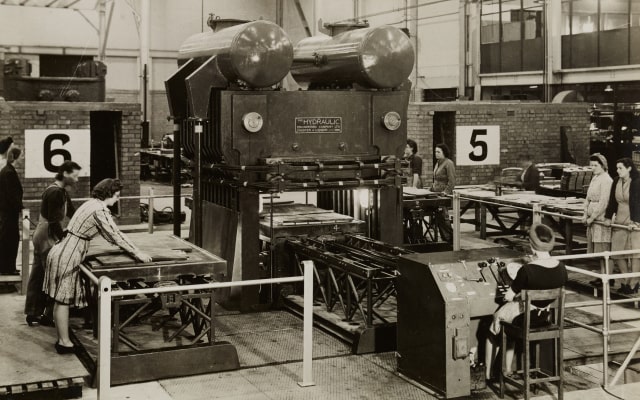Welcome to the world of industrial manufacturing, where every product goes through a magical transformation from raw materials to finished goods. But have you ever wondered about the journey of that shiny gadget you’re holding in your hands? Well, that’s where traceability and data analytics come into play. Traceability refers to the ability to track and record the entire manufacturing process, ensuring product quality, regulatory compliance, issue identification, and supply chain efficiency. And when you add data analytics to the mix, things get even more exciting. It revolutionizes traceability by providing real-time monitoring, predictive insights, process optimization, and improved equipment efficiency. So, hold on tight as we dive deeper into the world of traceability and data analytics in industrial manufacturing.

What is Traceability?
Traceability in industrial manufacturing goes beyond simply keeping track of items. It involves tracing and tracking products, components, and materials throughout the entire production process. This is crucial for a few reasons. Firstly, it ensures product quality by identifying any issues or defects and taking corrective actions promptly. Secondly, it helps with regulatory compliance by keeping track of everything and demonstrating adherence to standards. Furthermore, traceability aids in identifying and resolving issues, leading to improved efficiency and productivity. Lastly, it enhances supply chain efficiency by optimizing inventory management and ensuring timely delivery. Traceability is important, and now let’s discuss how data analytics revolutionizes this process.
Data analytics has helped to enhance traceability by providing real-time monitoring, predictive insights, optimizing processes, and improving equipment efficiency. By using data analytics, manufacturers can identify bottlenecks, inefficiencies, and potential problems before they happen, allowing them to make proactive decisions and maximize productivity. In essence, data analytics acts as a valuable tool in manufacturing, helping to achieve excellence.
Challenges and Future Implications
Implementing traceability and data analytics in industrial manufacturing processes poses significant challenges. The hurdles include collecting and integrating data from various sources, ensuring data accuracy and reliability, navigating privacy and security concerns, and dealing with the high cost of implementation. However, these challenges also present an opportunity for growth and innovation. Successful case studies show how companies have overcome these hurdles and emerged stronger.
Case Studies
The world of industrial manufacturing has witnessed remarkable transformations through the integration of traceability and data analytics. Let’s delve into the success stories of two companies that have leveraged these game-changing technologies to overcome challenges, drive efficiency, and uncover hidden opportunities.
Company A: From Chaos to Efficiency
Imagine a manufacturing facility plagued with constant quality issues, delays, and a lack of visibility. It was a place where chaos reigned supreme, leaving the management scratching their heads in frustration. But one fine day, they decided enough was enough. They implemented a robust traceability system coupled with data analytics to gain real-time insights into their production processes. With this newfound power, Company A was able to identify bottlenecks, monitor their equipment’s performance, and optimize production schedules. They embraced proactive decision-making, thanks to predictive analytics, and bid farewell to costly downtime. The chaos was replaced by streamlined operations and improved overall efficiency.
Company B: Uncovering Hidden Opportunities
In a competitive market,Company B was struggling to differentiate itself. They needed a spark to ignite their growth. That spark came in the form of traceability and data analytics. By meticulously collecting and analyzing data from their manufacturing processes, the company unearthed hidden patterns and opportunities.
With a deep understanding of their production cycle, Company B identified areas where they could reduce costs, improve product quality, and enhance customer satisfaction. Data became their secret weapon, enabling them to make data-driven decisions that propelled them ahead of their competitors.
These two companies exemplify the profound impact traceability and data analytics can have on industrial manufacturing. They transformed chaos into efficiency, and uncovered opportunities that were previously hidden in plain sight. The possibilities are endless when you combine the power of technology with a strategic approach. So, are you ready to unlock your manufacturing potential? Let traceability and data analytics be your guide!
Conclusion
Traceability in industrial manufacturing processes involves keeping track of products throughout the manufacturing journey. It is crucial for ensuring product quality, regulatory compliance, issue identification, and supply chain efficiency. Data analytics complements traceability by providing real-time monitoring, predictive insights, and optimization of production processes and equipment efficiency. However, implementing traceability and data analytics comes with challenges such as collecting and integrating data, ensuring data accuracy and reliability, addressing privacy and security concerns, and considering the cost of implementation. Successful integration of traceability and data analytics has been demonstrated in case studies, resulting in improved efficiency and the discovery of hidden opportunities. In conclusion, traceability and data analytics are vital components in industrial manufacturing processes, providing the glue that holds everything together and the magic that brings it to life.
Share this post





